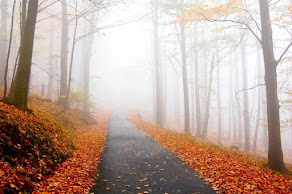"It was the best of times, it was the worst of times, it was an age of wisdom, it was an age of foolishness, it was an epoch of belief, it was an epoch of incredulity . . . "
So begins Charles Dickens's novel A Tale of Two Cities. And I'd guess most of us agree that these lines are as relevant to our own world today as they were to 18th-century France and England.
The Dickens outlook no doubt applies to politics, class, economics, race. It also applies to this year's holidays. For me, it was the worst of times, because I spent Christmas alone. Yet it was also the best of times because, through Zoom, I was able to meet up with far-flung family members from New York to Arizona, from Wisconsin to Florida -- people who otherwise I rarely get to see.
Carol Cassara of Heart, Mind, Soul, certainly agrees that this has been a different kind of holiday, one that's not very merry or bright. In her post I Carry Your Heart she offers support for those who have suffered losses, and she reminds us that we "carry the love we feel for others all our days."
Rita Robison, consumer journalist, warns us to Watch Out for Scammers who are looking to steal pandemic stimulus checks -- assuming Congress and the president finally do agree on the amount. She offers information on how to safeguard your payment, along with a website where you can report suspicious behavior.
Holidays tend to evoke misty memories of childhood celebrations. This Christmas, Meryl Baer of Beach Boomer Bulletin recalls traveling with her sisters and parents to spend a Christmas day of yore with her aunt and uncle in New York City. But if you think it's all gauzy nostalgia, think again. Instead, Baer reveals the shouting, taunting, giggling and scolding that went on in A Manhattan Christmas of the 1960s.
Jennifer at Unfold and Begin acknowledges that 2020 has been a long and difficult year. Many of us have been playing hooky from our healthy lifestyles, workout routines and other goals that were on track until last March. So Jennifer plans to start a new regimen to heal mind and body and invites us to join her at Let's Ease into 2021.
 |
| She shows us how it's done |
As a follow-up, Kathy Gottberg of SmartLiving365 has selected a list of Best Blogs & Websites for Positive Aging -- some two dozen websites that share thoughts that "engage, inspire and encourage us as we age and/or retire."
Finally, Laurie Stone of Musings, Rants & Scribbles turns to her 85-year-old mom for a role model. When people meet her mother they often exclaim, "I can't believe her age!" And while Laurie believes her mother's sturdy Irish genes play a part in her good health, she also credits her mother's lifestyle for helping her stay fit, strong and ... yes, young. So check out 8 Vital Lessons from My Mother to meet the lady who "shows us how it's done."































